The coronavirus pandemic is something akin to a neutron bomb – it leaves industrial capacity and productive infrastructure intact while largely removing humans from the economic equation. Absolutely no reconstruction in the wake of this war is required but just maintenance, which is not as simple as it might sound – paying salaries and keeping companies afloat is an urgent challenge confronting the Productive Development Ministry which is crowding out any medium-term or long-range economic planning. The ministry’s mission statement defines productive development as a means towards the end of creating quality jobs – but it is all it can do to save jobs of any type these days.
Productive Development Minister Matías Sebastián Kulfas, 48, could be forgiven if he suffers an identity crisis. For 16 of the 17 weeks between Alberto Fernández prematurely emerging as Argentina’s next president after his August 11 primary landslide and naming his Cabinet last December 6, Kulfas was the future economy minister until he wasn’t (even “confirmed” in that post by at least one newspaper, as late as November 29). Today, Kulfas is in many ways the minister after all because Economy Minister Martín Guzmán’s debt fetishism has abdicated the real economy to him almost entirely. Except that who can talk about a real economy in today’s surrealistic landscape?
Kulfas and Guzmán may have partitioned the economy between them (apart from agriculture, with its own ministry) but this division of labour is not so neat and tidy. The Alberto Fernández presidency echoes the Néstor Kirchner argument that an economy needs to grow before it can repay its debts, a reasonable enough proposition, but on that basis the creditors would like to see the plan for that growth and Kulfas isn’t giving Guzmán one, thus painting him into something of a corner in the negotiations. It would be unreasonable to expect Kulfas to have much time for planning ever, since coronavirus overran the agenda in March but there was no sign of any ‘plandemic’ before the pandemic.
One especially messy area of planning is energy policy. This was always going to be confused because here Kulfas has to share his authority. The problem here is not so much Energy Secretary Sergio Lanziani (a K Radical from Misiones and his subordinate within the Ministry) as YPF President Guillermo Nielsen – who preceded Kulfas as ministerial frontrunner and who outweighed him considerably in prestige as the tough negotiator of the 2005 bond swap.Nielsen was initially granted as YPF chief, an autonomy denied even the Central Bank in the hope that Vaca Muerta shale windfalls might thus reach as high as US$30 billion (this autonomy lasted barely a fortnight before right at the end of last year President Fernández nixed a five percent fuel price increase unilaterally proffered by Nielsen to encourage investors). Kulfas does not have to worry too much about Lanziani or Nielsen these days but is quite capable of creating confusion on his own account. At one end he is recommending a “barril criollo” support price of up to treble recent world oil prices to keep the industry going and at the other pushing for the pesofication of power generation after already having pesofied utility billing in late February in a return to populist pricing – trying to have it both ways.
Apart from the creation of quality jobs, the Productive Development Ministry’s mission statement defines its aims as Argentina’s economic projection abroad, the defence of competition and a more federal productive matrix – behind those official words, the top priority assigned to him by the Frente de Todos presidency was to reverse the “industricide” of the Mauricio Macri years. Hard to see any progress towards any of these goals in the admittedly short space of less than five months although Kulfas can hardly be held responsible for Argentina’s projection abroad where he has been sidelined by the Foreign Ministry and the presidency itself – thus his role over Mercosur has been limited to hearing out protectionist industrial lobbies.
Until now, Kulfas has been most visible co-announcing pandemic relief measures such as the IFE emergency family income (whose distribution is not his task but that of the ANSES social security administration, again in the news this week) and credit for business (with a distinct bias for smaller units, ignoring that in a lockdown hardly anybody is “too big to fail” if income is zero while wage, tax and other costs remain constant for many more months).
If the 2003-2007 Néstor Kirchner administration (whose Cabinet chief was Alberto Fernández) liked to think of itself as “ordinary people doing extraordinary things,” Kulfas certainly qualifies for the first half of that phrase. His credentials for his current post are somewhat slender, not extending far beyond having been an undersecretary for PyMEs (small and medium-sized companies) and regional development at the tail end of those “ordinary people doing extraordinary things” (2006-2007). The public-sector experience of Kulfas is in fact considerably more financial than economic, specifically state banking – an economic adviser at Banco Ciudad (2004-2006) and a director at both Banco Nación (2008-2012) and the Central Bank (2012-2015).
Prior to that his career had been basically academic as a researcher at FLACSO (Facultad Latinoamericana de Ciencias Sociales) as from 1999 after picking up an economics degree from the University of Buenos Aires (UBA) in 1995. Although always working with centre-left administrations, Kulfas has no political militancy or factional loyalty with his presence in the Cabinet entirely due to his personal links to President Fernández, as a leading member of his Grupo Callao think tank.
This portfolio can trace its origins to the Industry and Trade Ministry created by Juan Domingo Perón in 1949 as soon as his constitutional reform shook off the eight-member cap on Cabinet size. For half a century after 1958, industry was a department within the Economy Ministry apart from brief resurrections in 1981 and 2002-2003, but in 2008 Cristina Fernández de Kirchner restored it to ministerial status under the verbose Débora Giorgi (2008-2015, one of the few Kirchnerite stars of yore other than those in jail who have not bounced back in some capacity in this current Frente de Todos administration for whatever reason, still remaining in municipal exile in La Matanza). In 2015 Macri rebranded the Industry Ministry as Production (its 2002-2003 label) and gave it to one of his cronies, Francisco Cabrera, who was replaced by the more capable economist Dante Sica in mid-2018 for a total of 14 ministers preceding Kulfas.
One question remains: is Kulfas the once and future economy minister should Guzmán stumble over the debt issue – who knows?









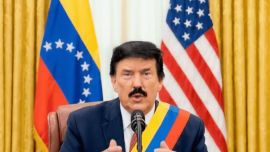




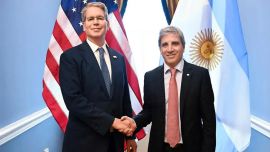



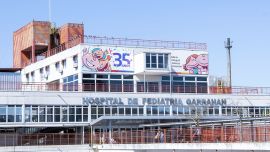

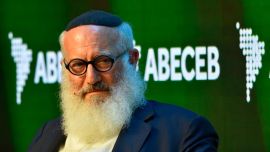

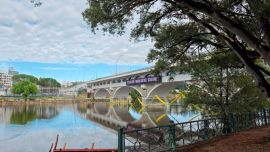
Comments